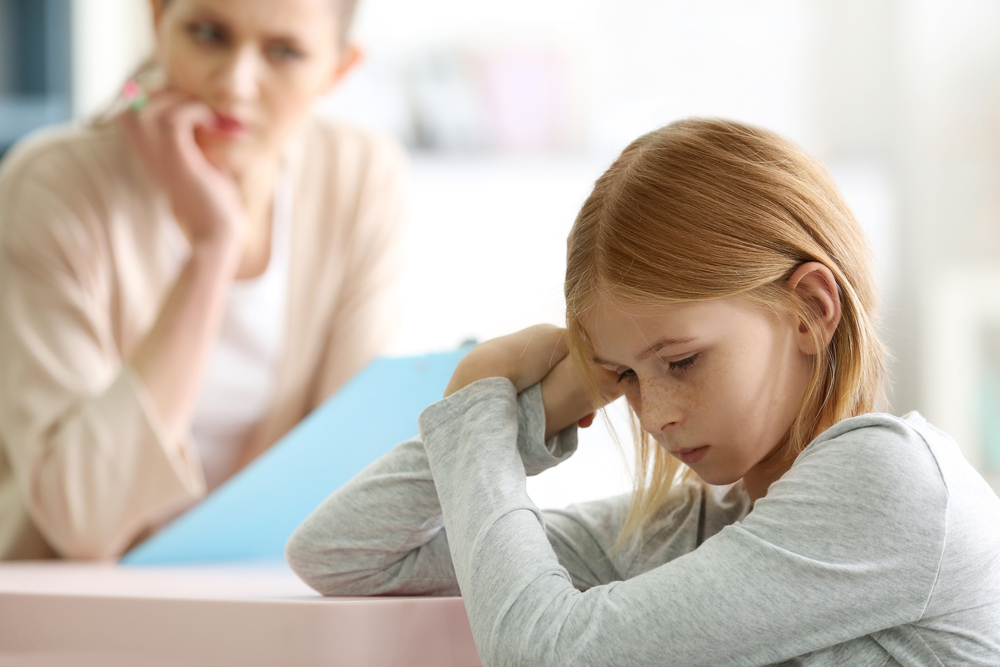Single parenting or single parenthood refers to a parent who brings up a child or children without the assistance of a partner.
The reasons for this can vary. Whether they come about after divorce, death, incarceration, or start that way, single-parent families are becoming increasingly common in the United States, with 23% of U.S. children under age 18 living in single-parent households, compared to 7% of children worldwide.
Additionally, the structure of single-parent families can differ, as some may be headed by a biological parent, grandparent, foster or adoptive parent, sibling, or temporary guardian. A wide breadth of clinical findings indicates that children growing up in single-parent families face related adversities as they typically do not have the same economic or human resources available as those growing up in two-parent families. Additional single parenting statistics and information regarding how being raised in a single-family household may affect a child include, but are not limited to, the following:
- Financial hardship: Nearly 30% of single parents live in poverty while just 6% of married couples fit this same statistic, meaning that children from single-parent families are more likely to grow up in financially challenged circumstances. As adults, data shows, that these same children are more likely to earn lower incomes than people who grew up in more affluent two-parent homes.
- Poorer educational outcomes: Results from a longitudinal analysis confirm that adolescents in single-parent families are more likely to have ever been suspended or expelled from school, to have participated in delinquent activities, and to have problems getting along with teachers, doing homework, and paying attention in school. The dropout rate for students from single-parent families is three times higher than their counterparts from two-parent families.
- Behavioral issues: Teenagers of divorced parents are 1.5 to 2 times more likely to engage in risky behaviors (e.g., early sexual activity, suicidal ideation, suicide attempts, etc.).
- Psychological effects: Children of single parents are prone to various psychiatric illnesses. According to one study, psychiatric disorders were found to occur with higher frequency in children of single parent families, especially those lacking a father during the child’s whole life. Research published in The Lancet showed, among other things, that 2.5% of girls and 1.5% of boys in single-parent families were hospitalized with mental health problems ranging from severe depression to paranoid schizophrenia, compared to 1% percent of girls and 0.5% of boys in two-parent homes. The risk of suicide is more than twice as high among children in one-parent households compared with those living with both parents.
Although nearly one in every three kids across America live in a single-parent household, they are more likely to face emotional and behavioral health challenges when compared to peers raised by married parents or in two-parent families.
Further Information and Support
For most of us, life can be very stressful, leading us to feel emotionally charged, which can cause anxiety, panic attacks, depression, and getting stuck in a cycle of being burdened with negative thoughts. Navigating through the challenges and emotional turmoil of life can be overwhelming, but you do not have to go through it alone. Engage Treatment is a Joint Commission Accredited professional psychological practice. We specialize in treating children, teens, and young adults struggling with depression and anxiety through community-focused treatment plans that incorporate a carefully selected combination of therapeutic interventions. Our compassionate, multidisciplinary practitioners are devoted to providing the highest quality of care that helps ignite positive change and enables clients to reach optimal health and well-being. Please do not hesitate to reach out for guidance. We are happy to answer questions and provide you with any additional information. Feel free to call us at 805-497-0605 or email us at [email protected]. You are also welcomed to get in touch by filling out our contact form. We look forward to connecting and having the opportunity to discuss how we might best be able to support you.
Contact Us
Westlake Campus:
IOP Program
2625 Townsgate Road, Suite 210
Westlake Village, California 91361
Agoura Campus:
Private Therapy & Parenting Program
30300 Agoura Road, Suite 250
Agoura Hills, CA 91301
805-497-0605
805-371-4862











© 2023 Engage Treatment Program, Inc. All Rights Reserved.
LGBTQ Friendly
About
• About Engage
• Our Team
• Career Opportunities
• Individual / Family Therapy
Resources
• Community Resources
• Blog
• FAQ
• Referring Clinicians
• Privacy Policy & SMS Terms






